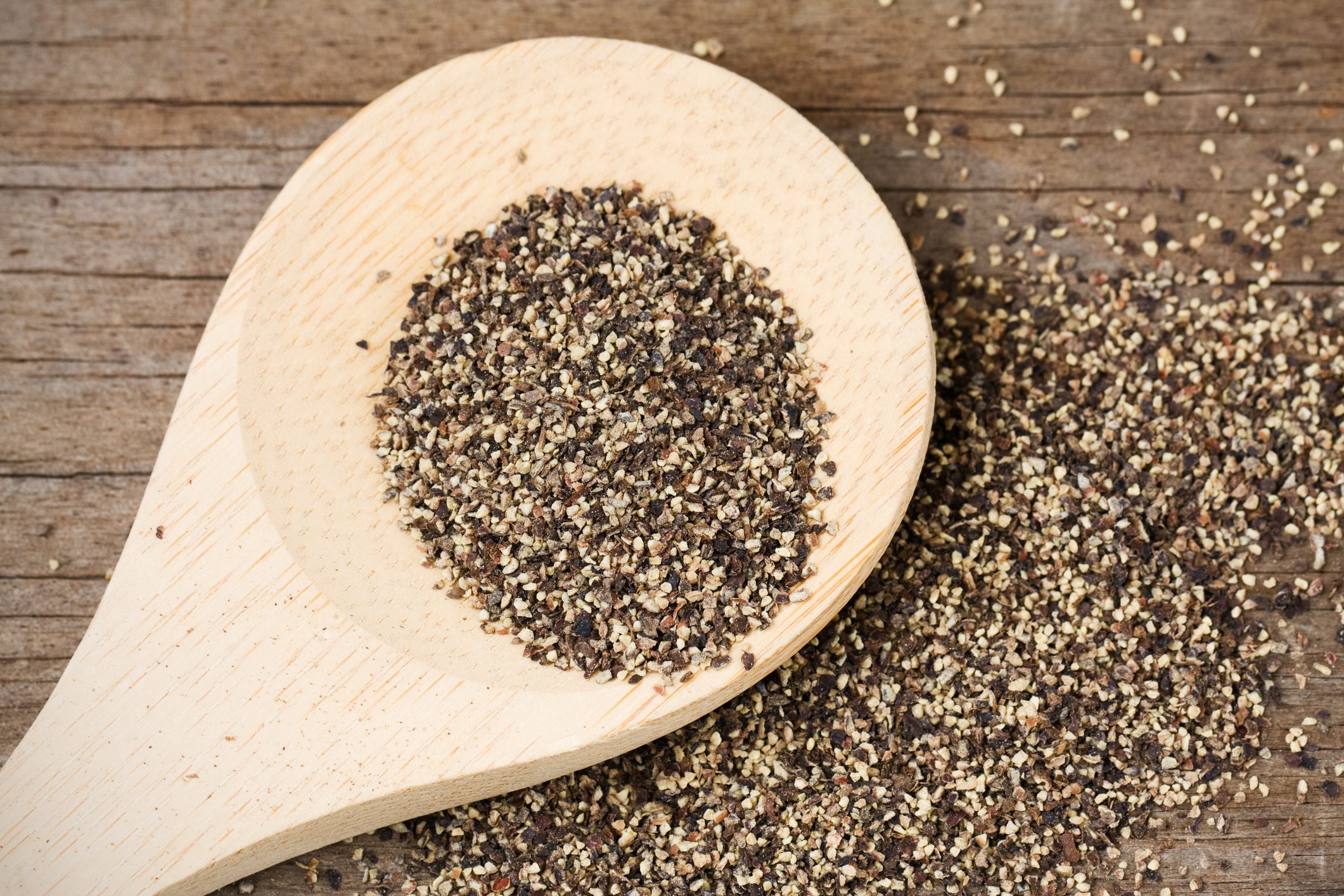It's a condiment that sits in spice cabinets around the world—but an FDA announcement highlights a toxin risk that might give you the "ick."

Spice Recall in 46 U.S. States Warns of Toxin Risk

Recent safety warnings have highlighted the dangers of spices contaminated with heavy metals such as lead and harmful bacteria such as Salmonella. Now, Curio Spice Co., a Massachusetts-based company with products positioned for gifting and gourmet cooking, has announced a widespread recall of its “Grains of Paradise (Korerima)” spice due to possible mold contamination.
Initially announced on October 31, the safety notice was updated on November 27 to reflect a Class II risk level. This means that the FDA has identified the incident as “a situation in which use of or exposure to a violative product may cause temporary or medically reversible adverse health consequences or where the probability of serious adverse health consequences is remote.”
Though mold is typically not inherently toxic, it can produce mycotoxins—poisonous substances that can be harmful to humans. “Mycotoxins are naturally occurring toxic compounds produced by certain types of molds. Molds that can produce mycotoxins grow on numerous foodstuffs such as cereals, dried fruits, nuts and spices,” says the World Health Organization (WHO).
The recall highlights a broader danger, given that 25% of the world’s food crops are estimated to be affected by mycotoxins, according to a 2021 report by the USDA’s Food Safety Inspection Service (FSIS).
Though only 760 units of the spice were affected by mold contamination, 46 states were impacted by the recall: AL, AK, AZ, CA, CO, CT, DC, DE, FL, GA, HI, IA, ID, IL, IN, KY, LA, MA, MD, ME, MI, MN, MO, MS, MT, NC, NE, NH, NJ, NM, NV, NY, OH, OK, OR, PA, RI, SC, SD, TN, TX, UT, VA, VT, WA, WI. Only four states—Arkansas, Kansas, West Virginia, and Wyoming—were excluded from the FDA’s safety alert.
The impacted products were distributed in 1.25 oz. jars and bear the UPC code 672975171032. The products were sold between June 1 and October 23, 2024, but their “best by” date is more than two years away, listed as February 20, 2027.
If you believe you have purchased or received the affected products, do not consume them or sniff them to determine their freshness. “This can cause respiratory trouble,” the FSIS notes.
Grains of paradise—a spice also sometimes called melegueta pepper, alligator pepper, or black cardamom—is cultivated and used in parts of Ethiopia and Eastern Africa, according to the Curio Spice Co. website. “Korerima is similar to green cardamom, but with deeper flavor and notes of smokiness,” the company writes. The company says some people enjoy it in coffee, on citrus fruits, or in stews, while other sources say it can serve as an alternative to black pepper on meat, eggs, and more.
The company notes that this particular blend was sourced from a women’s farming cooperative in Bonga, Ethiopia.
Mold contamination can pose a serious health threat, especially among people with asthma, mold allergies, or weakened immune systems. According to the Mayo Clinic, inhaling or consuming mold spores may cause symptoms that range from mild to severe, including:
- Sneezing
- Runny or stuffy nose
- Cough and postnasal drip
- Itchy eyes, nose, and throat
- Watery eyes
- Dry, scaly skin
Instead, discard the product or return it to your place of purchase for a refund. You can also reach Curio Spice Co.’s customer support by email or phone by clicking through the FDA links above.
For daily wellness updates, subscribe to The Healthy by Reader’s Digest newsletter and follow The Healthy on Facebook and Instagram. Keep reading:
An earlier version of this article referred to the recalled product as “pepper.” On Thursday, December 12, 2024, Curio Spice Co contacted our editors with the following: “The product is a black cardamom (part of the ginger family) and is not a pepper.”



















